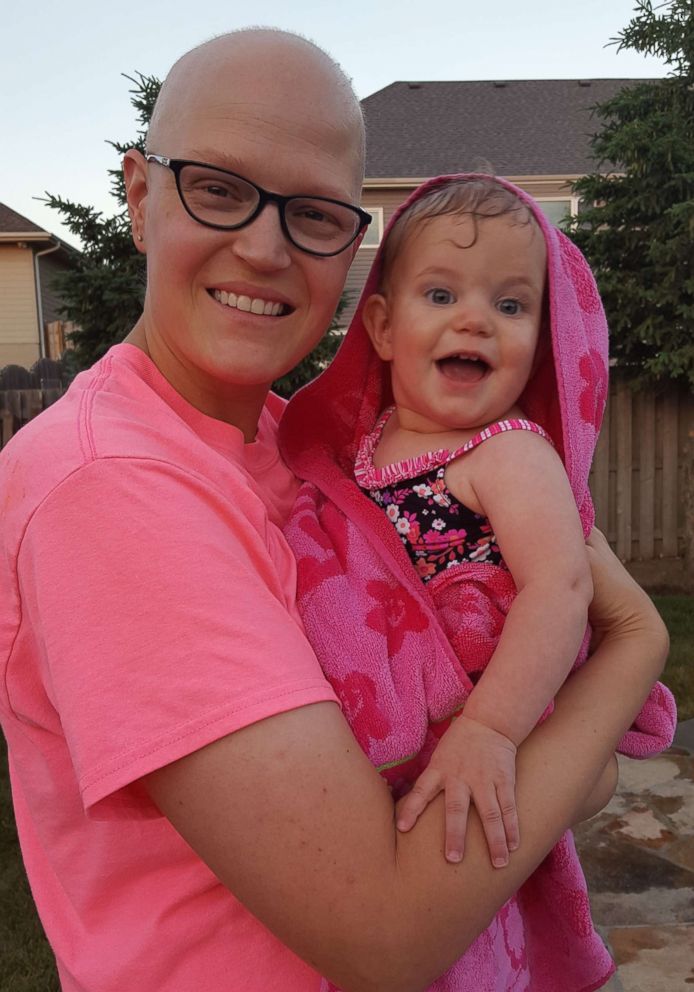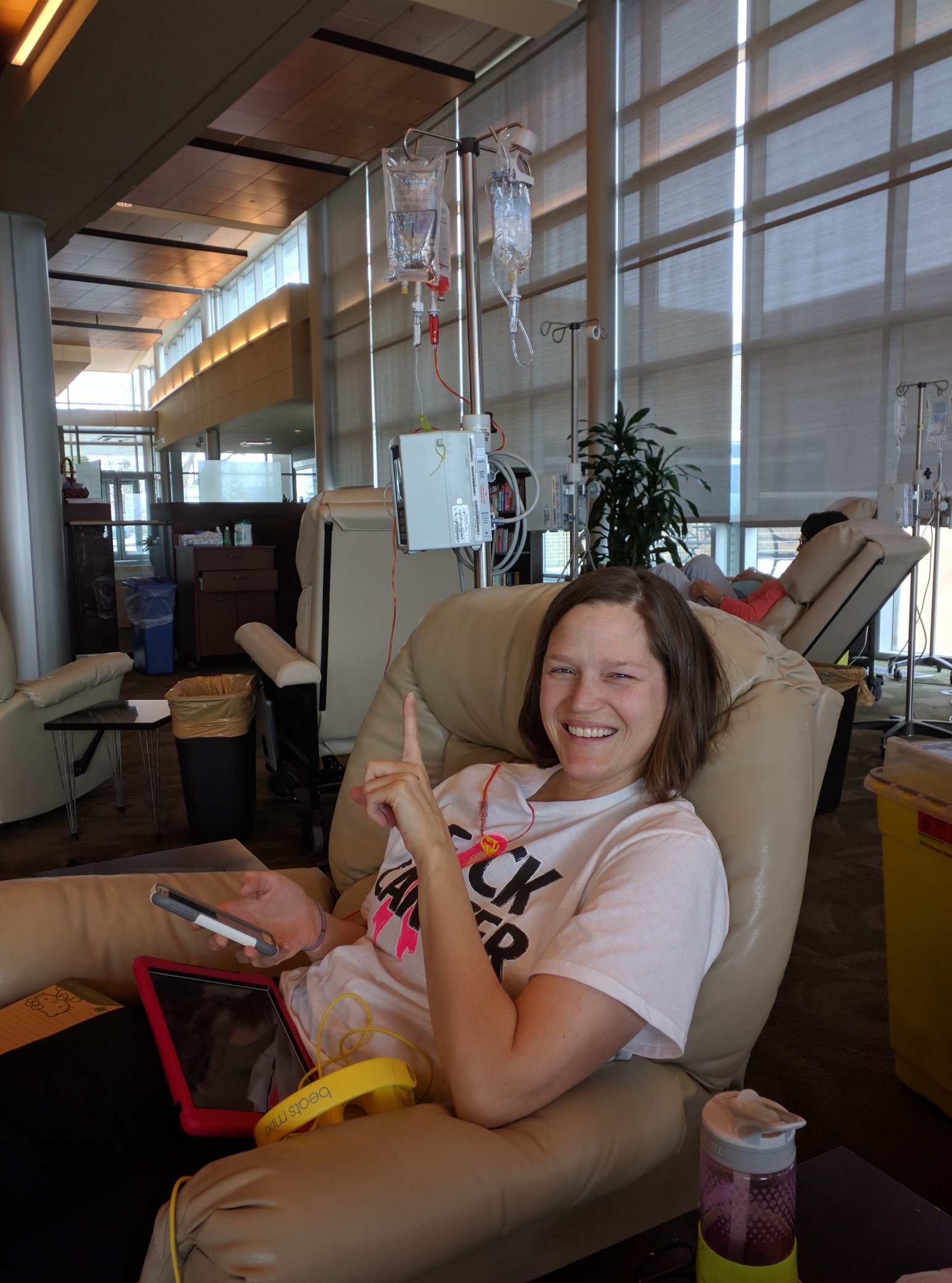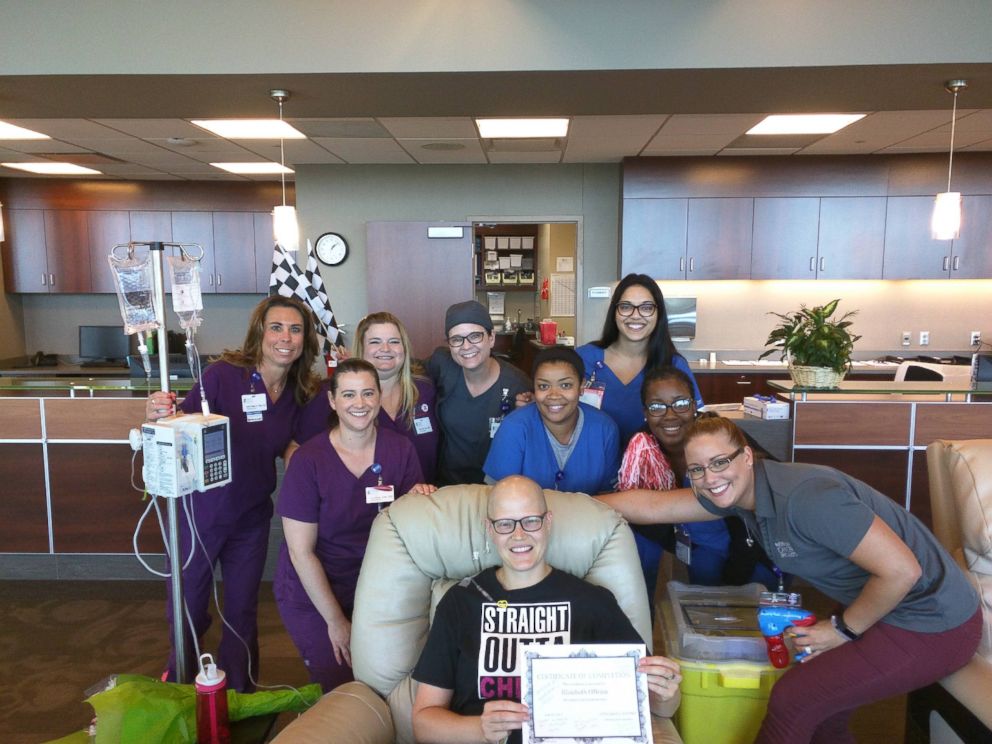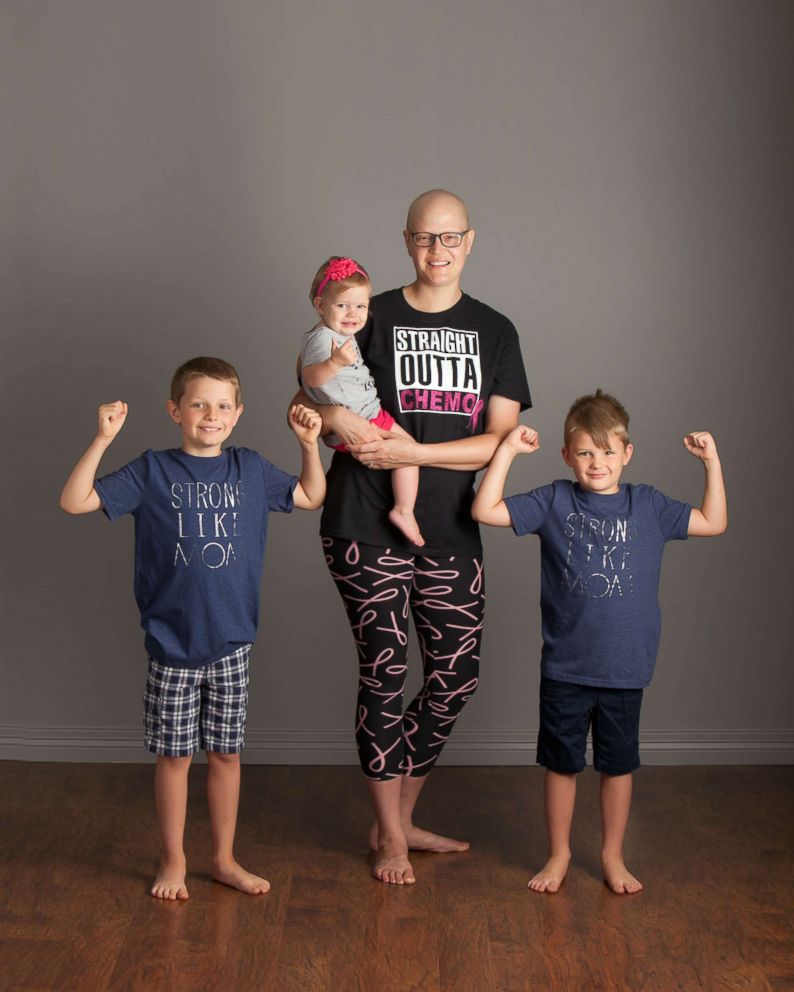What this 38-year-old mom who discovered a lump while breastfeeding wants you to know
Beth O'Brien was feeding her 9-month-old in 2017 when she made the discovery.
When Beth O'Brien was feeding her 9-month-old daughter in 2017, she came across what she thought at the time was a clogged milk duct in her breast.
But after seeing doctors and undergoing exams, she would soon realize that her discovery was much more serious.
O'Brien, who works in a hospital, said she asked the lactation nurses at her job for tips to clear her clogged milk duct, but nothing worked. The 38-year-old mom of three then went for an ultrasound and, later, a biopsy which determined she had triple-negative breast cancer stage 2.
"Hearing cancer itself is pretty scary," O'Brien of Bennington, Nebraska, told "Good Morning America." "Researching it on the internet and seeing it was triple negative, which is an aggressive cancer that comes back, is an even bigger blow."
"[I had] more fear for my kids that I wouldn't be there for them," she added. "My kids are my number one. They were a blessing helping me through, and my two older boys were awesome and helping with their sister. We stepped up as a family and conquered it."

We stepped up as a family and conquered it.
With the support of her husband and her three children, O'Brien underwent chemotherapy, a double mastectomy, more chemo and then 28 doses of radiation treatment.
O'Brien said she's now showing no signs of cancer and has a preventative hysterectomy scheduled.
Now, she's sharing her story in hopes women will perform more self-checks -- even if they're under 40 when rates of breast cancer are lower.
"I did breast exams every other month... not extensively," O'Brien said. "It's [a] blessing that I had my daughter and she was nursing at the time. I don't know [if] I would've discovered it if I wasn't nursing."

Dr. Roshni Rao, chief of breast surgery at New York-Presbyterian/Columbia University Irving Medical Center, said it's common for women under 40 to find their own cancerous tumors during self-exams since patients in that age group do not receive routine mammography.
Here are Rao's tips for self-examining your breasts.
How to self examine
Rao said to lie down on your back with one hand behind your head.
Move two fingers in a clockwise fashion starting around the nipple and continue around the entire breast area, one breast at a time and then the armpit area. Lead with one finger and follow with the other.
What you're feeling for
Really hard, fixed lumps that don't hurt.
"Things that hurt are almost always cysts and are benign, but things that don't hurt are almost always concerning," Rao said, adding that you will feel lumps and bumps no matter what.
"The main thing is to feel something different and you won't know that unless you intermittently examine your breasts," she added.
When to self-exam and how often
Rao recommends performing self-checks right after your period is over because that's when your breast tissue is going to be very calm and won't show nodularities due to hormone changes.
Rao suggests that starting at age 25, women should begin practicing self-exams. Women closer to the age of 40 should self-exam every two to three months and every month starting at the age of 40 is reasonable, she said.
"If you find something, watch it for one or two more weeks," Rao said. "If you're worried about it, we can check with an ultrasound."

Dr. Jennifer Ashton, ABC News' chief health and medical correspondent, said that skin changes in non-breastfeeding women like dimpling or indentation, abnormal nipple discharge, firm lumps, a sudden change in the nipple should all be discussed with a doctor.
For a breastfeeding woman, there are frequent changes in the breast -- the vast majority of which are not cancer. The bottom line is, "know your body," Ashton said.
"If you notice anything different, call your doctor [or] health care provider," Ashton added, noting that breast cancer is less common in young women but can occur and it's "better to be safe than sorry."

O'Brien agreed that women should be aware of their bodies and never be afraid to ask your doctor questions.
"If I can save somebody else or make them do something different in their lives then, by all means, I'll be out there to talk about it," she said.
Editor's Note: This story was originally published on July 10, 2018.




